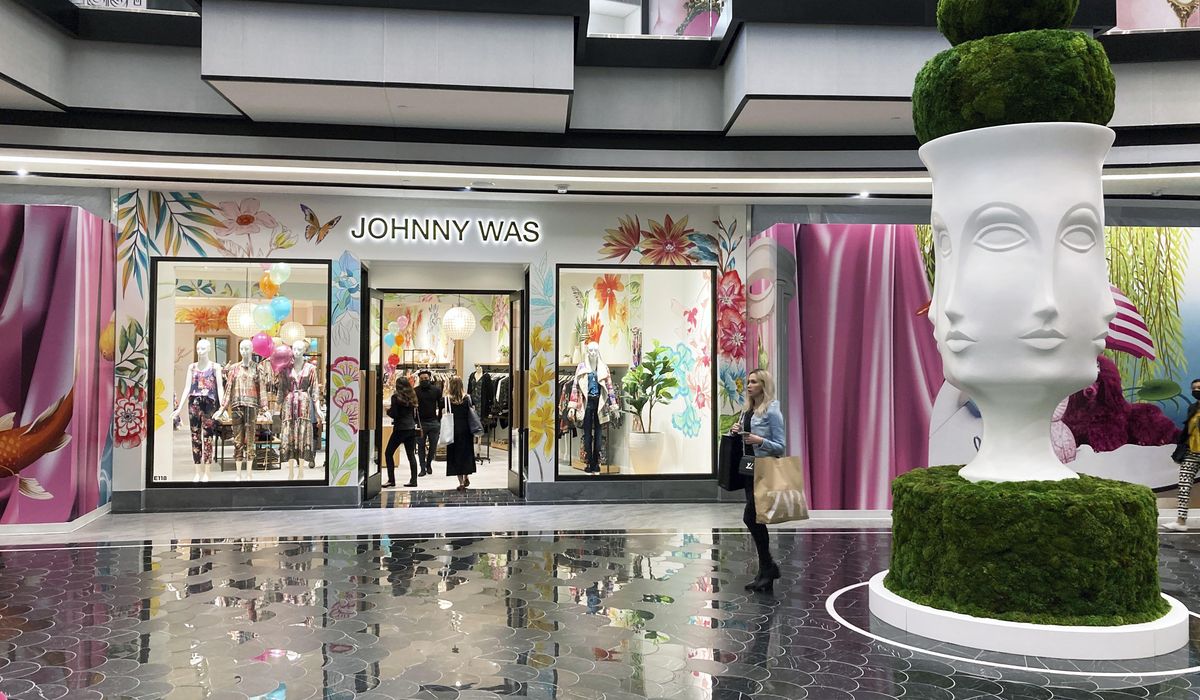
Black Friday, the annual retail event that traditionally offers shoppers big bargains and deep discounts the day after Thanksgiving, has already begun thanks to pandemic-related trends and supply chain disruptions.
Walmart, Target, Best Buy, Costco and Kohl’s have launched Black Friday advertising campaigns weeks early.
Meanwhile, online holiday shopping has increased 8% so far over last year, according to the software firm Adobe, which predicts U.S. consumers will spend a record $207 billion on online purchases this season.
“If you haven’t done your Christmas shopping yet, expect empty trees,” said Charles Mizrahi, a Wall Street trader who predicted the 1987 “Black Monday” stock crash. “There are too many dollars chasing too little supply right now.”
Pandemic-related lockdowns and closures forced businesses to expand online shopping and delivery options to replace in-store commerce and reduce inventories. Many cut back on goods from overseas suppliers because of lower demand for products.
Now that economies have reopened, companies can’t provide enough products fast enough to meet the demands of consumers eager and able to spend their money, causing prices to rise at alarming rates.
“The global supply chain challenges caused by port congestion, trucker shortages and increased global regulations have significantly delayed expected deliveries,” said Daniela Rognoni, a buyer at a major U.S. retailer. “These delays have an adverse effect on inventory levels and create cost increases.”
Angelica Gianchandani, a supply chain analyst who teaches in the Pompea College of Business at the University of New Haven, said in an email that retailers “will opt for month-long sales by blending online and in-store promotions that complement each other.”
Big retailers have responded by offering Black Friday deals earlier than usual, stepping up online and delivery options, and encouraging shoppers not to hunt for sales on the day after Thanksgiving.
Target announced in an Oct. 28 press release that “the kickoff to early Black Friday savings with week-long Holiday Best deals starting Oct. 31,” pledging that items so marked would reflect “the retailer’s best planned price of the season.”
In an Oct. 18 press release, Walmart presented plans for a “revamped Black Friday savings event” for the entire month of November, with the explicit intention of reducing in-store crowd sizes.
“By spreading deals out across multiple days and making our hottest deals available online, we expect the Black Friday experience in our stores will be safer and more manageable for both our customers and our associates,” Scott McCall, chief merchandising officer for Walmart U.S., said in the release.
As part of its plan to keep shoppers away from stores on Black Friday, Walmart is encouraging people to use online ordering and curbside pickup. It is also stationing “health ambassadors” at store entrances to remind shoppers to wear face masks.
A consumer study released this week suggests that Black Friday this year will have larger crowds than last year’s quarantine-hobbled event, but many shoppers will have completed their holiday purchases by Thanksgiving.
One-fifth of U.S. consumers have already started shopping for the holidays, partly because of fears of last-minute supply chain shortages, according to global marketing data firm Premise.
Premise’s survey of 1,960 consumers from Oct. 5 to Nov. 1 found that 19% of shoppers planned to start holiday shopping two months in advance, 11% had shopped three months in advance and 21% planned to shop one month early.
In 2020, 16% shopped two months in advance, 10% shopped three months in advance and 19% shopped one month in advance, Premise said.
“Last year, retailers pushed a longer shopping season with more online sales amid the pandemic. This year, the U.S. is running out of stock on almost everything, and even when goods come in, there aren’t enough drivers to get them to their destinations,” said David Bischof, Premise’s chief operating officer.
In an analysis of 20 trends for Black Friday, published Monday, Forbes senior contributor Blake Morgan predicted that pent-up demand will drive more shoppers to stores than last year as sales resurge online and in person.
“Almost all Black Friday shopping in 2020 took place online, but this year consumers are eager to get back in stores to buy physical items. Stores that offer exclusive in-store deals or unique experiences will draw in customers,” Ms. Morgan wrote.
Ms. Rognoni, the buyer for a U.S. retailer, offered advice to holiday shoppers: “Delays are inevitable, especially when relying entirely on Ecommerce this Holiday Season. Shop now and shop in-store when you can to mitigate the risk of falling victim to delays or cancellations.”
For more information, visit The Washington Times COVID-19 resource page.








